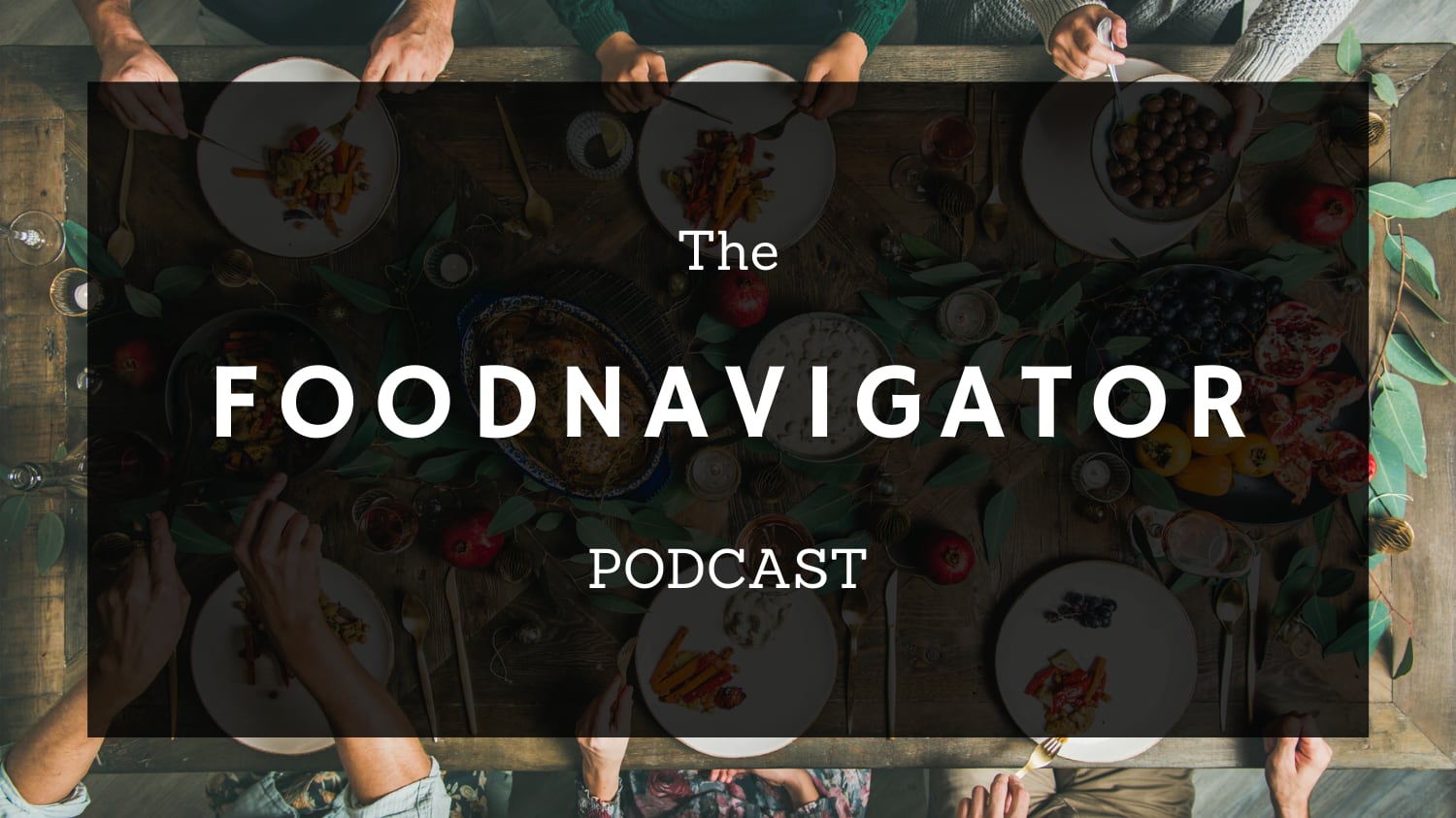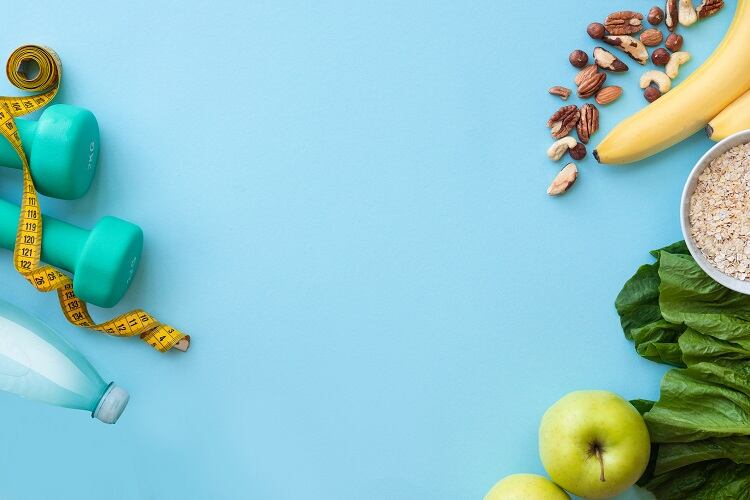With mounting pressure – both via voluntary targets and mandatory taxes – to reduce sugar in food and beverage, FMCGs are getting creative. Some are substituting sugar with coconut water, others with maize flour or tiger nuts. Scroll through the gallery to see who is doing what to cut the sweet stuff.

With mounting pressure – both via voluntary targets and mandatory taxes – to reduce sugar in food and beverage, FMCGs are getting creative. Some are substituting sugar with coconut water, others with maize flour or tiger nuts. Scroll through the gallery to see who is doing what to cut the sweet stuff.
Pic: GettyImages/AndreyPopov
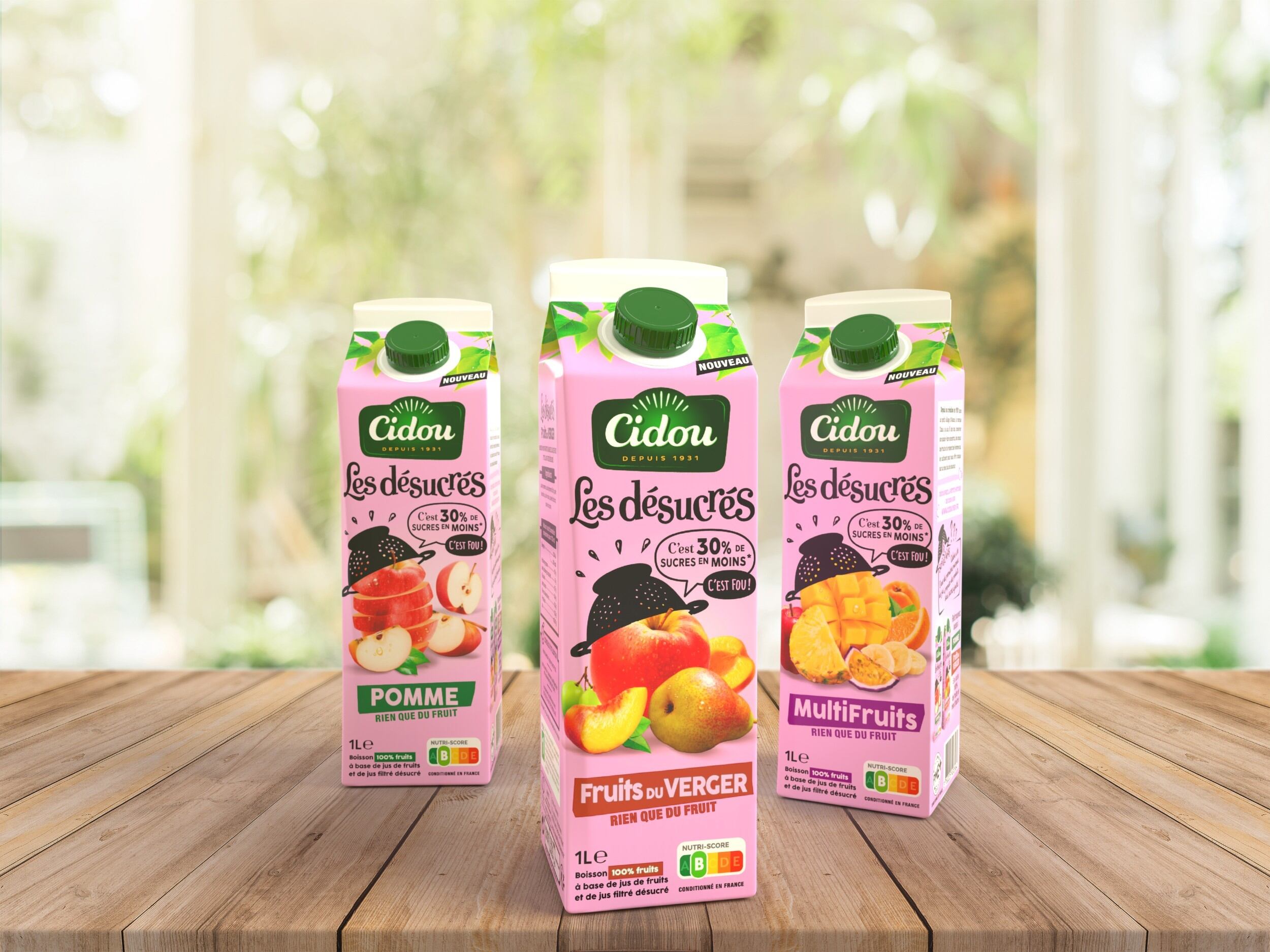
French juice manufacturer Cidou is using ‘an unprecedented manufacturing process’ to produce juices will less sugar.
The range of new juices, named ‘Les Desucrés’ (the de-sugared), is made from pure fruit juice – part of which is set aside, and the other part filtered. This allows Cidou to ‘capture’ the sugars.
The filtered, ‘de-sugared’ juice is then mixed in with the pure juice – whether it be for the range’s Fruits from the Orchard, Sweet Apple, of Multifruit SKU.
The result is a beverage with 30% less sugar (containing 6.5g sugar per 100ml) than a standard pure juice, which is ranked ‘B’ according to the Nutri-Score labelling scheme. It also achieves a Nova score of 1 – meaning the product is minimally processed.
Image source: Cidou
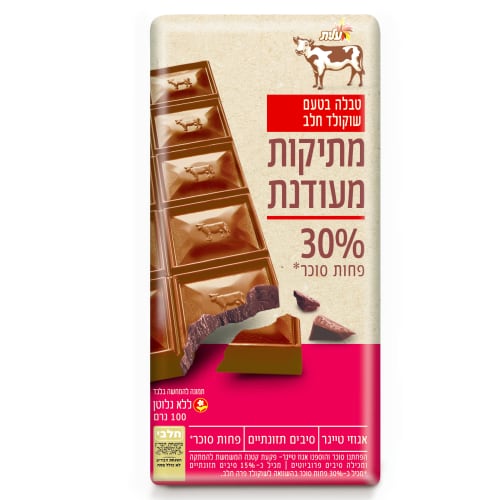
In Israel, Strauss Group has achieved a 30% sugar reduction in its refined sweet milk chocolate bar.
By replacing sugar with two key ingredients – dietary fibre (17%) and ground tiger nut flour (5%) – the food giant was able to retain the sweet taste, while preserving the chocolate’s creamy texture.
The tiger nut tuber is a natural source of sweetness. According to Strauss, it has its roots in Spain, where it is integrated into the local food culture. It is also found in South America and the eastern states.
The tuber is rich in vitamins and minerals and non-water-soluble dietary fibre. It also contains fats similar to those found in olive oil. Other nutritional benefits include a high content of resistant probiotic starch, which ‘serves as a substrate to gut-friendly bacteria’.
Perhaps most important in this context, however, is the tuber’s slightly sweet taste. “In a complex development process, it was found to be a source of sweetness that could significantly reduce sugar while preserving the familiar taste of chocolate.”
After two years of research and development, the product launched in September last year. At the time, CEO of Strauss Israel Eyal Dror applauded the ‘international breakthrough’ in the field of chocolate.
“Thanks to creativity, expertise and professionalism in the field, we have succeeded in producing a new and improved recipe, offering the consumer a line of products that are healthier, while maintaining their great taste."
Image source: Strauss Group
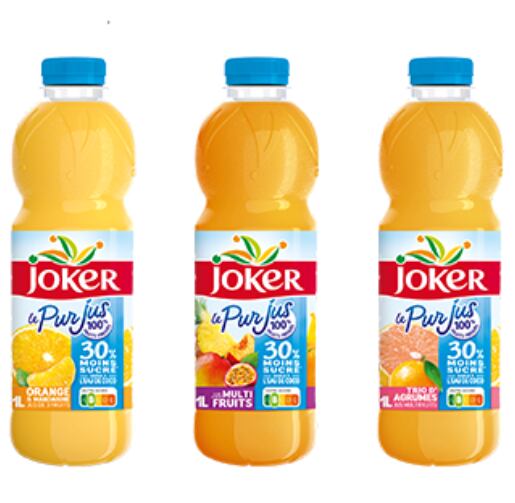
French juice brand Joker, owned by Eckes Granini, developed a juice product with 30% less sugar.
First launched in January 2018, the range of juices – available in orange, multifruit, and citrus – achieve a sugar reduction thanks to the addition of coconut water.
Coconut water is the clear liquid found inside coconuts. Typically, 100ml of coconut water contains just 2.6g of sugar, compared to the 8g of sugar found in 100ml of orange juice.
Joker’s 30% reduced sugar range is ranked ‘B’ according to the Nutri-Score labelling scheme.
French supermarket retailer Auchun has since taken a leaf out of Eckes Granini’s book, having similarly reduced sugar content by 30% in line of own-brand juices. Launched earlier this year, Auchun’s two new SKUs, orange & mandarin and multifruit, showcase the coconut flavour on the label. Similarly to Joker’s products, the line is has a ‘B’ Nutri-Score ranking.
Image source: Eckes Granini
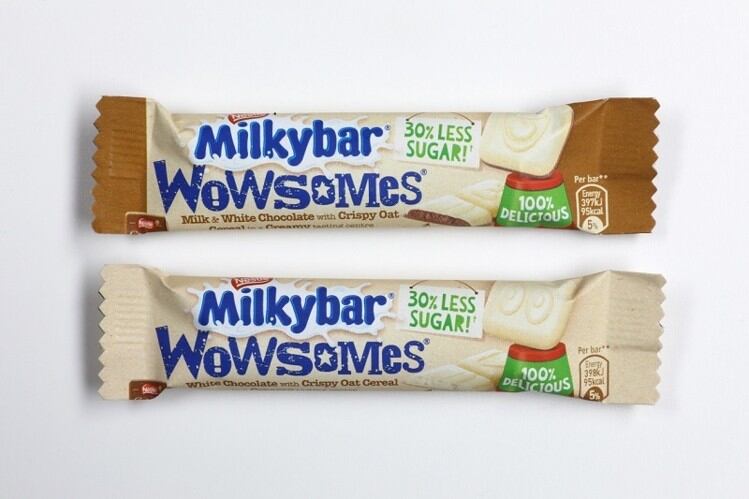
Swiss food giant Nestlé attracted significant attention when it launched Milkybar Wowsomes in the UK and Ireland two years ago.
The product contained 30% less sugar than Milkybar original, and as such, was expected to cause a stir. Further, the product contained no artificial sweeteners, preservatives, colours, or flavourings.
The ‘entirely new product’ was sold in either milk chocolate, or, for the first time, a combination of both milk and white chocolate in the same bar.
What was particularly original about Milkbar Wowsomes, however, was its sugar reduction strategy. At the time of the launch, Nestlé said the newly developed process used only natural ingredients. Essentially, it transforms the structure of sugar.
“Inspired by candy floss, experts created aerated, porous particles of sugar that dissolve more quickly in the mouth,” explained the manufacturer. “This allows someone to perceive the same level of sweetness as before while consuming less sugar.”
However, earlier this year, Nestlé announced it had pulled the product from shelves due to poor demand. The company understood Milkybar Wowsomes did not meet consumer expectations in terms of price point and taste.
Image source: Nestlé
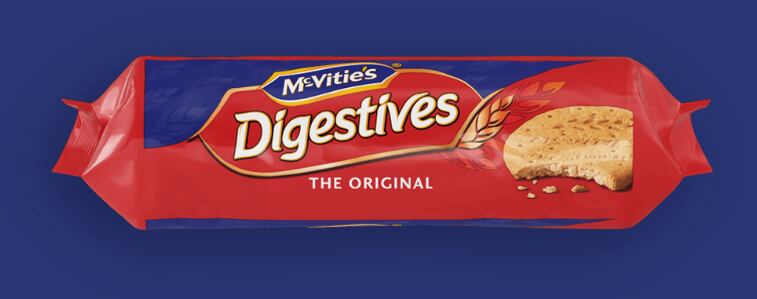
Earlier this year, Pladis-owned McVitie’s announced it was reducing sugar in nine of its best-selling UK biscuits by up to 10%. The trick? Rebalancing ingredients, according to the biscuit maker.
Pladis testes is celebrated Digestives, Hobnobs, and Ginger Nuts products, alongside others, with ‘hundreds of consumers’ to ensure the taste and texture profile passed the test. Even a group of self-confessed McVitie’s ‘superfans’ were involved.
According to Pladis, it was important the reformulated products tasted exactly the same when dunked in a cup of tea. The company used a ‘mechanical dunking arm’ in the laboratory to record the ‘time to break’ when dunked.
The result is McVitie’s Original Digestives with just 15.1g sugar per 100g, compared to the previous 16.6g. McVitie’s Rich Tea biscuits now contain 18.5g sugar per 100g, and McVitie’s Original Hobnobs now contain 22.9g sugar per 100g.
Further, the brand’s Milk Chocolate Digestives now contain 28.5g per 100g, and the dark chocolate variety, just 26.6g sugar per 100g.
The company aims to get below, or as close to, Public Health England’s target (of 26.2g sugar per 100g) while maintaining McVitie’s distinctive taste.
Image source: Pladis
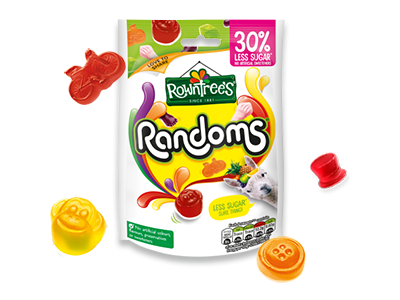
Although not a recent reformulation project, Nestlé successfully removed 30% sugar from its Rowntrees Fruit Pastilles and Randoms in 2017.
Prior to meddling with the sugar content, Rowntrees Fruit Pastilles contained 55.9g of sugar per 100g, and Randoms contained 53.1g of sugar per 100g.
Having spent ‘months tweaking, tasting and testing’ more than 76 versions of the recipe, the food giant achieved its 30% reduction by substituting sugar with maize fibre – which the company stressed is a natural ingredient.
Today, the sugar-reduced variety of Rowntrees Fruit Pastilles contains 37.8g of sugar per 100g, and the sugar-reduced Randoms, 38.5g of sugar.
Reformulation efforts have also had an impact on overall calorie content. The calories in Fruit Pastilles 30% less sugar have 325kcal per 100g, compared with 352kcal per 100g in the standard product.
And the calories in Randoms 30% less sugar are 299kcal per 100g, compared with 334kcal per 100g in the standard products.
Image source:
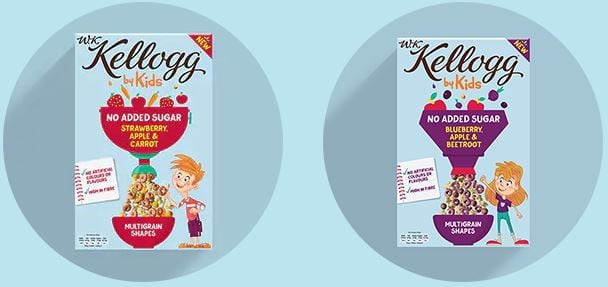
Kellogg’s created its first no added sugar cereal for children in January. Called WK Kellogg by Kids, it was launched in two flavours: Strawberry, Apple & Carrot, and Blueberry, Apple & Beetroot.
The product was developed in collaboration with children and their parents and consists of mix of ‘fun shapes’ such as stars, hoops and balls.
Significantly, the cereal products are naturally coloured and flavoured using fruit and vegetable juice concentrates purees, juices and powders, creating a cereal with no artificial colours, flavours or sweeteners.
Kellogg’s activation brand lead UK, Aimee Cowan said: “W.K. Kellogg by Kids is the first mainstream children’s cereal range with fruit and vegetables. We are targeting parents who can’t find what they are looking for in the cereal aisle. We wanted to offer something that is a balance between health and taste at breakfast time. Something that has good nutritionals for kids, but that they won’t find boring or tasteless.”
Kellogg’s said the new cereal was part of its drive to help families ‘make better choices in the morning’. In January 2019 it made all of its granolas no-added sugar and added its first ever vegetable variant to the portfolio – W.K. Kellogg Raspberry, Apple and Carrot.
Aimee said the moves led to “significant increases in rate of sale of the adult range” in the year. “This gives us the confidence that consumers will love No Added Sugar W.K. Kellogg by Kids and trust the W.K. Kellogg range to deliver not only on taste but health as well.”
Image source: The Kellogg Company



